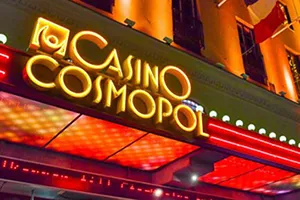 This spring saw the Swedish government propose to close the last Svenska Spel-run Casino Cosmopol establishment by January 1st, 2026. This would spell the end of Svenska Spel’s land-based gambling license, paving the way for other operators to apply for licensing and potentially be granted regulatory approval to begin targeting Swedish clients.
This spring saw the Swedish government propose to close the last Svenska Spel-run Casino Cosmopol establishment by January 1st, 2026. This would spell the end of Svenska Spel’s land-based gambling license, paving the way for other operators to apply for licensing and potentially be granted regulatory approval to begin targeting Swedish clients.
As reported by magazine Dagens Juridik’s Sara Johansson, Spelinspektionen, the entity responsible for regulating the Swedish gambling market, has now warned that this course of action risks diverting player traffic to the illegal gambling market.
As established, the venue belongs to Sweden’s state-run gambling operator, Svenska Spel, and its subpar profitability has been cited as the main reason for contemplating shutting the business down. Svenska Spel has also confirmed that Casino Cosmopolitan was struggling financially and that the decline in its client base could be attributed to the rise of online gambling.
In spite of these issues, Sweden’s Police Authority has warned that with Casino Cosmopolitan’s closure, Swedish consumers will probably begin seeking out black market gambling establishments. Spelinspektionen shared this sentiment and explained that although illicit gambling cases that have resulted in charges have been “relatively few,” this could change should the government move forward with its proposal.
Spelinspektionen did not actually oppose the plan, however. Instead, it stressed that the regulator will need to allocate more resources toward addressing the issue of operators that do not comply with Swedish gambling legislation.
Sweden’s Gambling Landscape and How it Has Changed Recent Years
 The Swedish gambling sector has undergone a number of changes in recent years. In 2019, the Swedish government took steps to end the monopoly model that the country’s online gambling market was governed by at the time. Since then, a number of operators have managed to carve out a spot for themselves in the country’s gambling sector, although stringent regulations have made other operators hesitate.
The Swedish gambling sector has undergone a number of changes in recent years. In 2019, the Swedish government took steps to end the monopoly model that the country’s online gambling market was governed by at the time. Since then, a number of operators have managed to carve out a spot for themselves in the country’s gambling sector, although stringent regulations have made other operators hesitate.
In addition, a gambling tax increase came into effect in July 2024, with the tax now standing at 22%. This was another government measure that prompted warnings of the illegal gambling market gaining prevalence in the country, although it has not yet been confirmed if the predictions were true.
Of course, the regulator also continued to target operators that do not adhere to Swedish gambling regulations. Days after the tax increase came into effect, a probe into Small House BV’s conduct uncovered that it had made efforts to appeal to a Swedish audience despite lacking the licensing to do so legally. Earlier this year, three more companies were sanctioned by Spelinspektionen for similar transgressions: Newera Frozen PTE Limited, Aprodi LTD, and Galaktika NV.
Casino Cosmopol owner Svenska Spel has also run into regulatory issues with the regulator. This spring, the company was handed a SEK100 million (over $9 million) fine for not helping clients who were showing clear signs of problem gambling.